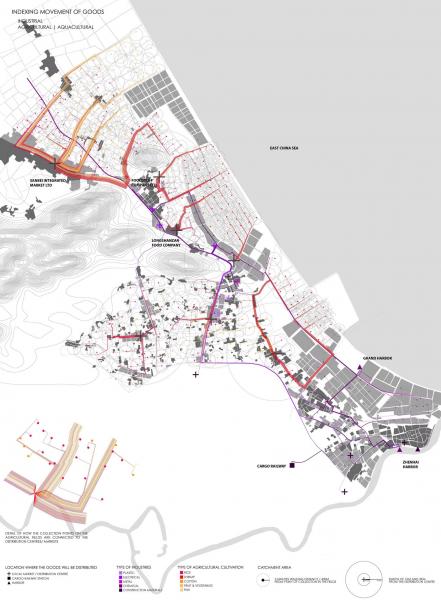
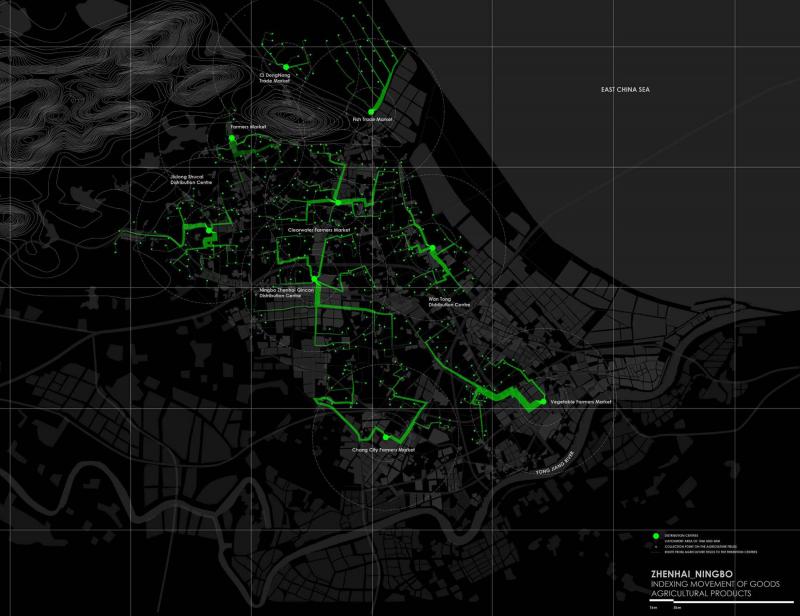
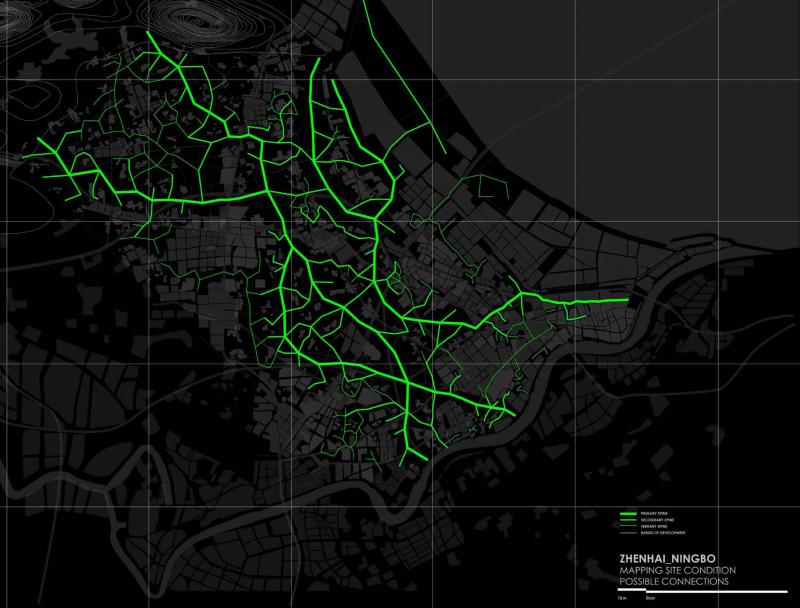
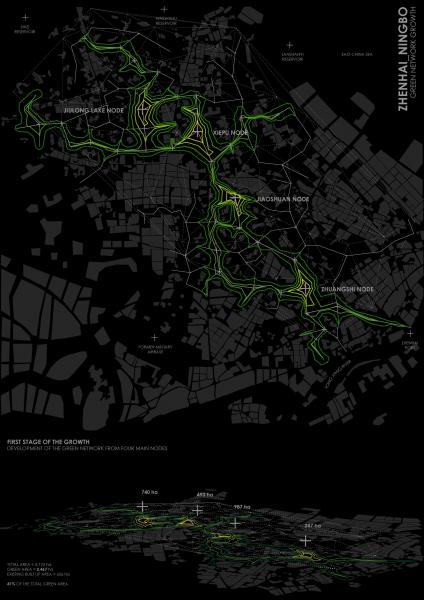
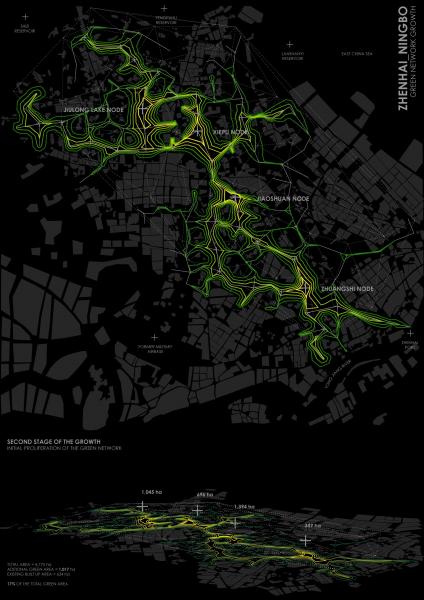

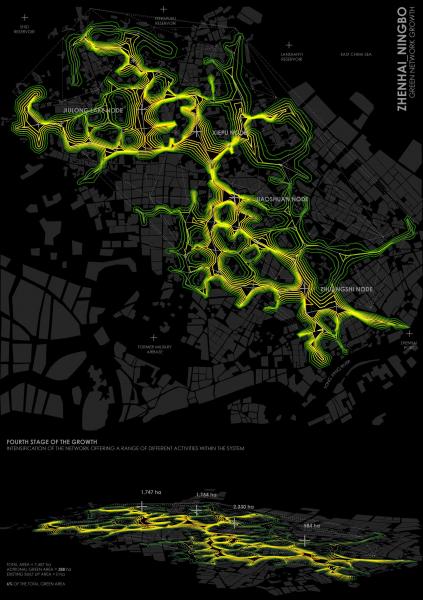
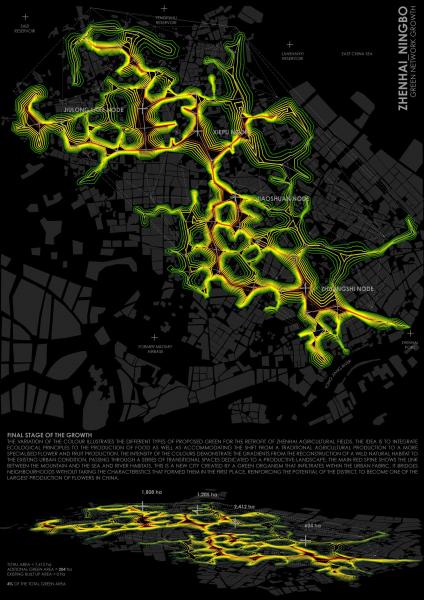
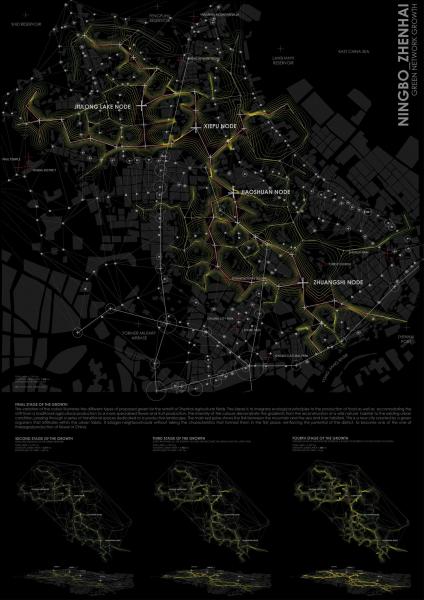
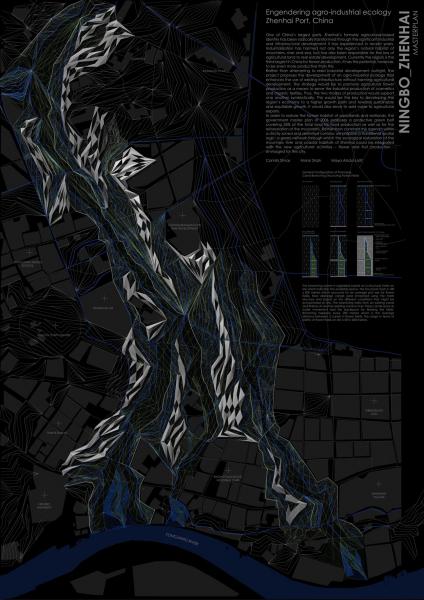
Engendering agro- industrial ecology.
Camila Simas, Mansi Shah, Maya Latif.
Zhenhai being one of the biggest ports in China brought many heavy industries and infrastructures that changed the identity of the region from agricultural to industrial district. This industrialization harmed not only the natural habitat of mountains, river and sea in this region but also started converting the agricultural land to real estates. Besides, the region has an enormous potential to overcome its position of being third largest production of flower in China. Rather resisting the development of the industries, the proposal for the project is to develop an agro- industrial ecology that enhances the use of existing infrastructure without harming the agricultural development. The strategy would be to promote flower production that enhances a new drive of industries like cosmetic and organic textiles, that mutually support each other in symbiotic relation. This would be the key to develop the region’s economy to a higher growth path towards sustainable and equitable growth along with adding value to agricultural exports. In order to bring back the habitat, the government master plan dated 2006 proposes a protective green belt covering 35 percent of the total land for food production as well as reforestation of the mountains. With the same agenda the project would also be developed into a green network where the ecological restoration of the mountain, river and sea habitats of Zhenhai could be integrated to the new agricultural activities envisaged for the city. Flower and fruit production will be the drive for this new spatial organisation that acts as the transitional space between the urbanised area that will work as a symbiotic system where the water can be treated, recycled and stored, food more effectively produced without harming the environment to promote different habitats and improve biodiversity.